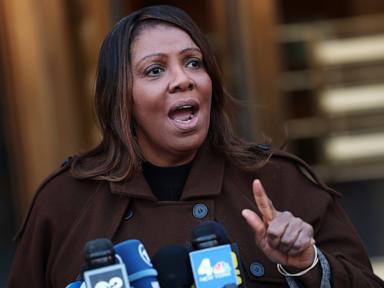Court proceedings might often unfold behind closed doors, but the Democratic attorneys general challenging President Trump’s expansive agenda want to bring their work to your feed.
Democratic attorneys general are turning to new media to mount their resistance to Trump 2.0, using untraditional means to win in the court of public opinion while waging legal battles in courtrooms across the country.
“This is an opportunity for us to ensure that the federal government is held to account when they violate the rights of our respective states and the residents of our states,” Michigan Attorney General Dana Nessel told The Hill, citing the burst of legal fights brought by attorneys general.
“We just thought it was more important than ever to make sure that people are understanding, like, ‘What does an attorney general even do?’”
At least nine legal challenges to major Trump administration actions have been brought by coalitions of Democratic attorneys general across the country, targeting federal aid freezes, efforts to nullify birthright citizenship, mass government worker layoffs and Elon Musk’s cost-cutting Department of Government Efficiency (DOGE).
Meanwhile, the top state legal officers have flooded online platforms with their victories, swipes at Trump and pleas to keep the faith while lengthy litigation moves through the notoriously sluggish judiciary.
“Legal processes are slow, complex and opaque,” said Ioana Literat, a professor at the Teachers College of Columbia University who studies online political expression. “So, these efforts then show a growing recognition that legal resistance … must also be culturally legible.”
For example, the Instagram feed of the Democratic Attorneys General Association, an advocacy group for state attorneys general, is sprinkled with shareable content, from artsy infographics to short videos that both hop on TikTok trends and lay out state prosecutors’ plans to stop the president’s agenda in the courts.
“They’re also not only framing these legal actions in institutional terms, but also in moral, emotional — even aesthetic — terms that really resonate online,” Literat added.
The shift toward new media comes after a distinctly digital presidential election.
Trump’s coalition of right-wing influencers and podcast bros helped serve up his populist agenda to new demographics, while former Vice President Kamala Harris’s adaptation of pop star Charli XCX’s “brat” branding and online memes gave Democrats a fighting chance after former President Biden’s campaign dramatically faltered.
As Democratic attorneys general have emerged as a first line of defense against Trump, who also enjoys GOP majorities in both chambers of Congress, branching out on messaging has become a significant conversation among the state legal officers, Nessel said.
That includes elevating Democratic voices in the podcasting world, which is dominated by conservative household names such as Candace Owens and Tucker Carlson, or Joe Rogan and Theo Von, who lent Trump a hand come election season.
Earlier this year, Nessel and Arizona Attorney General Kris Mayes launched a podcast together called “Pantsuits and Lawsuits” to dissect key legal and political battles — and explain their roles in it all.
“If you’re not meeting people where they are, then you’re not going to get your viewpoints across,” Mayes told The Hill, suggesting that Democrats need to do a better job of creating their own ...













